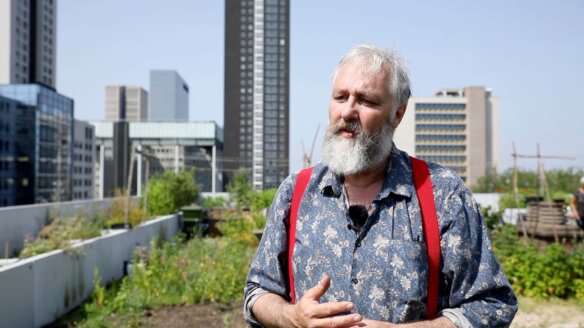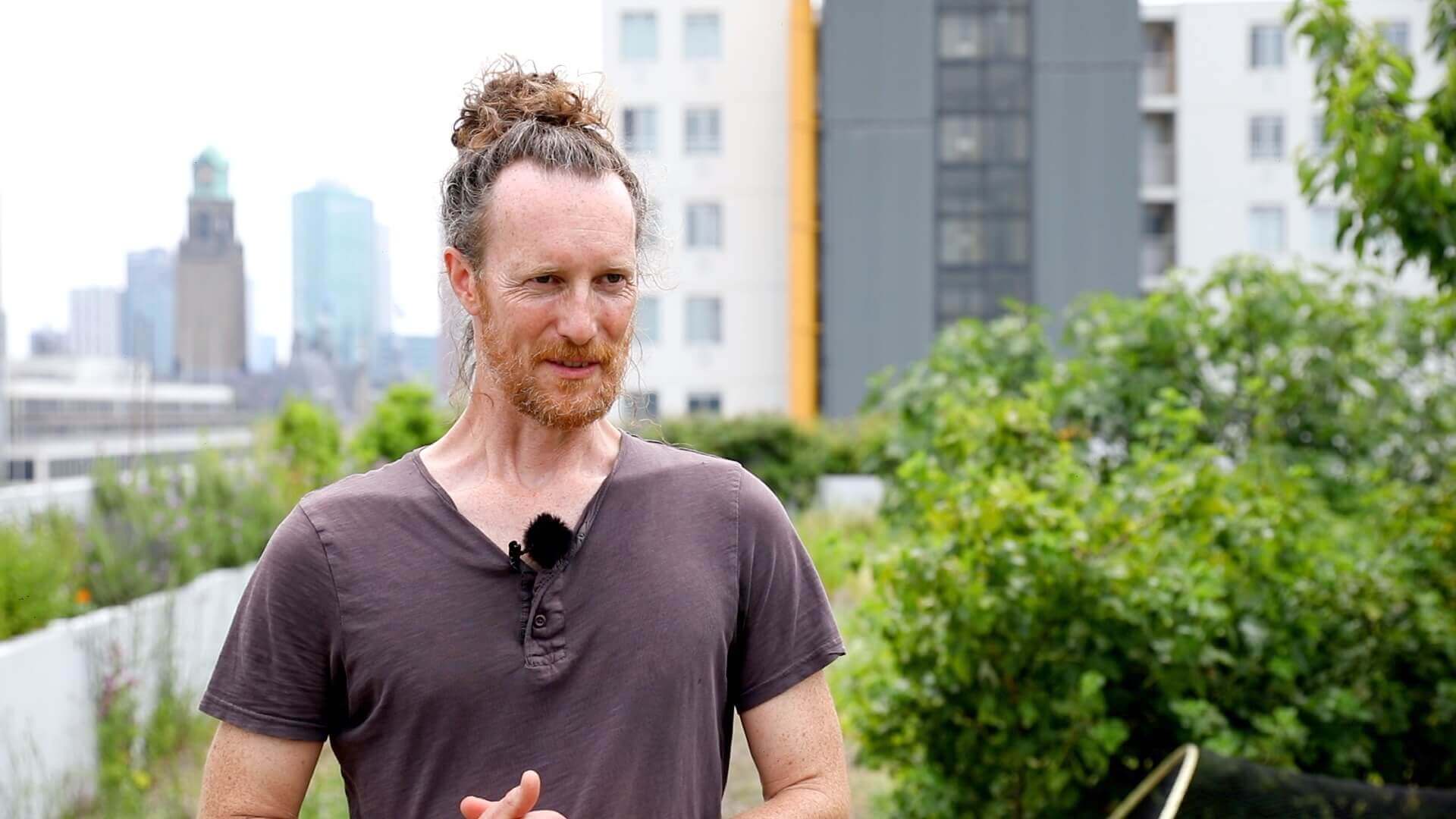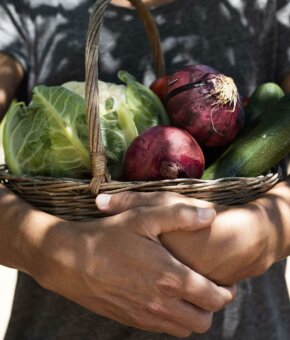
The Dutch city of Rotterdam is mostly famous for its port, which is the biggest in Europe. But amidst all this industrial activity, a green treasure is hidden. The DakAkker is a 1,000 m2 urban rooftop farm, where organic fruits, vegetables, flowers, and herbs are grown and bees are kept. We visited the largest open-air roof farm in the Netherlands to experience how food miles are cut, biodiversity is boosted and effects of climate change are reduced.
“People called me crazy”, says Emile van Rinsum, co-founder of the DakAkker, when he talks about his original plan for the rooftop farm. But ten years later, the once empty black roof is bursting with life. Herbs such as mint, lemon verbena, and lavender are grown, as well as a wide variety of fruits and vegetables including Jerusalem artichoke, beetroot, carrot, pumpkin, radish, onion, leek, garlic, raspberry, and rhubarb. Beehives have been placed on the rooftop and chickens wander around freely.

Food steps, no food miles
Bistro ‘Op het Dak’, located on the roof, uses the super fresh harvest of the DakAkker for its menu. The fruits, vegetables, and edible flowers are also delivered to other local restaurants, sold during festivals and in high season directly to visitors every Friday. All produce is delivered within walking or cycling distance, keeping the food chain as short as possible.
Minimal waste, maximum impact
The DakAkker only grows organic crops. Toxic fertilizers or pesticides are nowhere to be found on this farm. A six-year alternating crop schedule is used instead. To grow the crops, the rooftop farm collects and uses rainwater. In worm hotels, compost is made that is used on the roof itself as well as sold as “worm tea” (liquid compost) to shops and consumers. By maximizing the use of resources and closing the loop wherever possible, the DakAkker is contributing towards a zero-waste city.
Also read: Making zero food waste in cities the new norm, is possible. This is how
Smart roofs for smart cities
The rooftop system of the DakAkker is made up of different layers. Since 2018, it’s been equipped with a test site for smart water storage. This intelligent roof system has sensors for a downpour-proof Rotterdam. When extreme rain is predicted, the smart control reacts by making extra water storage capacity available 24 hours in advance. With more erratic rainfall expected in the future, the DakAkker helps the city of Rotterdam to adapt to climate change.
The rooftop system also acts as an insulation layer. During summer it keeps the building naturally cool and mitigates the urban heat island effect. Green roofs heat up to about thirty degrees, where traditional black roofs reach seventy or eighty degrees Celsius. Green roofs and rooftop farms such as the DakAkker contribute significantly to the liveability of cities.
Building sustainable communities
Rooftop farmer Wouter Bauman is responsible for the management of the DakAkker, together with a large group of enthusiastic volunteers.

The rooftop farm currently has a waiting list for volunteers, proving the increasing number of engaged citizens ready to reconnect with their food and communities. “Fifteen years ago, you might have thought that a rooftop farm was just a dream. But when you decide to pursue that dream, everything will be fine.”
Are you inspired by this story? Make sure to sign up for our monthly newsletter and get the best stories about sustainable urban food production delivered straight to your inbox.



